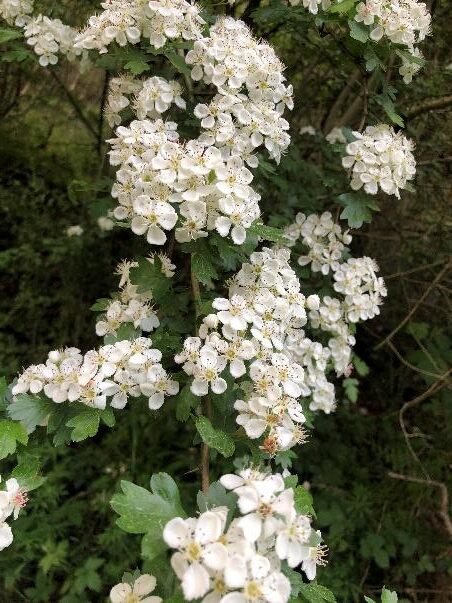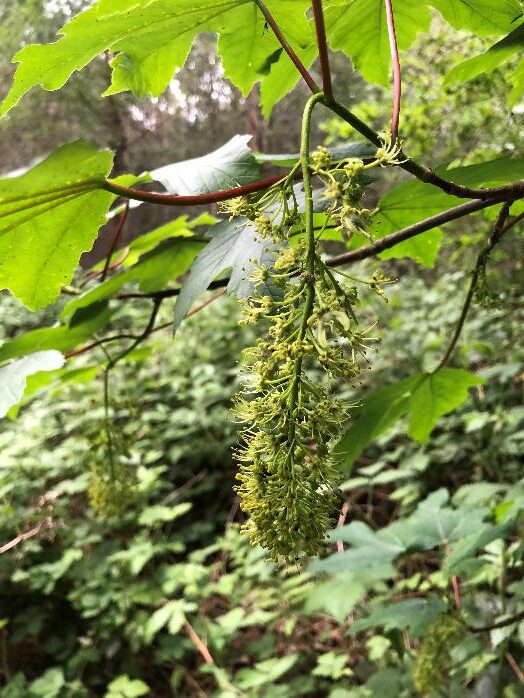Well that was quite a month!!!
It is clear that the cold wet spring until early May meant that there was very little swarming. Then the warm weather came and whoosh it seems everyone’s bees all swarmed at once! I know all of the swarm collectors have been really busy with calls, including me, and I have had serious logistical problems working out when I can free up a poly nuc so that I could go and get the next one. One of the swarms I have been trying to collect is in a wall at the Donkey pub in Tilford. I have tried a couple of things to no avail. If anyone has any bright ideas, please let me know!!
The largest hive in my garden was looking a bit swarmy (play cups and drones galore…) so I have started a Demaree procedure to try and prevent them from swarming, with the added benefit that it will get the bees onto fresh comb. I have also taken 2 supers off this hive for extraction, leaving 3 partially filled supers in situ.
Whilst we all moaned about that terrible deluge of constant rain earlier in the year, I think it has brought huge benefits for beekeepers – I have never seen dandelions and hawthorn so prolific as they were this year, and my bees are bunging nectar away like nobody’s business. For example, I hived a swarm just ten days ago and on checking it today there is already a super full of nearly capped honey. This particular colony came out of a chimney and now lives under a lime tree which is about to flower – needless to say I gave them another super today!
So all in all an extraordinary year so far – never before have I inspected my bees so late in the year for the first time, but never before have I harvested my first spring honey in May!
1. What is going on in the hive?
The hive should be building up strongly now, in terms of the number of bees, and the stores in the hive. If it isn’t, then have a good look through to make sure the queen is there, she is laying and that there are no signs of disease.
2. Check your hives
Keep on doing your regular inspections – at least every 7 days. Whilst May has been very swarmy, colonies could still swarm into June and July, so it is important to keep checking for queen cells, and be prepared to act if you see them. Also keep an eye on stores – due to the very wet spring, I don’t know if the legendary June gap will appear but keep an eye on what is going on with the weather! We have already had a dry spell over the last couple of weeks, so make sure your bees have a water source nearby.
If you have run out of drawn super frames, remember that it is very difficult to encourage the bees to draw comb once the days get start getting shorter again so exploit this time of year when there is a nectar flow, to get those super frames drawn out!
3. Check the larder
As already mentioned, it has been a fabulous year for flowering plants so far. I still have hawthorn in flower, and I noticed elderflower just coming into bloom. Holly has been in full flower, and sycamore also. My geraniums have just started and are being enjoyed by the bees, and my roses are looking promising! So no sign of the June gap yet….!
Enjoy your bees!




